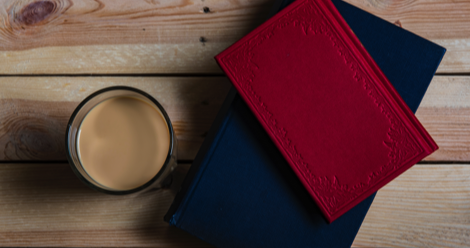
Wild Things: The Joy of Reading Children’s Literature as an Adult
 Wild Things: The Joy of Reading Children’s Literature as an Adult by Bruce Handy promotes reading and re-reading kids’ books to those who are no longer young. Don’t all bookworms occasionally return to their favorite stories of childhood? I know I do. But then I’ve always suffered chronic nostalgia, even while young. Wild Things will appeal to any bookworm who never got over growing up.
Wild Things: The Joy of Reading Children’s Literature as an Adult by Bruce Handy promotes reading and re-reading kids’ books to those who are no longer young. Don’t all bookworms occasionally return to their favorite stories of childhood? I know I do. But then I’ve always suffered chronic nostalgia, even while young. Wild Things will appeal to any bookworm who never got over growing up.
Handy’s stroll down childhood memories covers picture books like Goodnight Moon through young adult books like Charlotte’s Web. I came across reviews of his book while doing my own research on being old and reading young.
I just finished reading Anne of Green Gables for the first time because of seeing Anne with an E on Netflix. I was quite impressed with L. M. Montgomery’s 1908 novel of a Canadian orphan and wondered how many great stories I miss because I feel too old to read them?
I’ve always known I could time travel by reading books set in different historical periods, but it’s only in recent years that I realized I could time travel up and down my own timeline by rereading books that shook me at different stages of my life.
Anne of Green Gables has taught me something new. By reading books I didn’t read while young I can explore why, and that’s very revealing. At first, I thought I hadn’t read Anne of Green Gables as a boy because I thought it was a book for girls. Anne Shirley was eleven when she first came to Green Gables, about the age I should have read her story. At that age, I had read all the Oz books and A Wrinkle in Time, both books featuring girl protagonists. So gender wasn’t a factor.
Putting memory puzzle pieces together I realized as a child I loved books about fantastic adventures and eventually became a science fiction addict. Anne’s adventures were realistic and mundane. Now that I’m old I wish I had read Anne of Green Gables back then because I needed to have been more realistic about life.
I remember the first time I reread a children’s book as an adult. I had dropped out of my sophomore year of college to pursue my own self-education through reading. I bought a complete set of Oz books by L. Frank Baum and reread them – books I had first read in fifth grade. Even though I was less than I decade older, I realized how far I had come, how much I had changed, but more important, how the books had programmed me. The reading brought the unconscious to the conscious.
For years some libraries banned the Oz books believing they promoted unrealistic expectations about life. In my case, they were right. If I could have identified with Anne Shirley at eleven it would have balanced out Dorothy’s adventures.
I cannot be more detailed about the psychological revelations of revisiting childhood stories without writing a book. But then you could read Wild Things by Bruce Handy until I can get around to writing my book.





